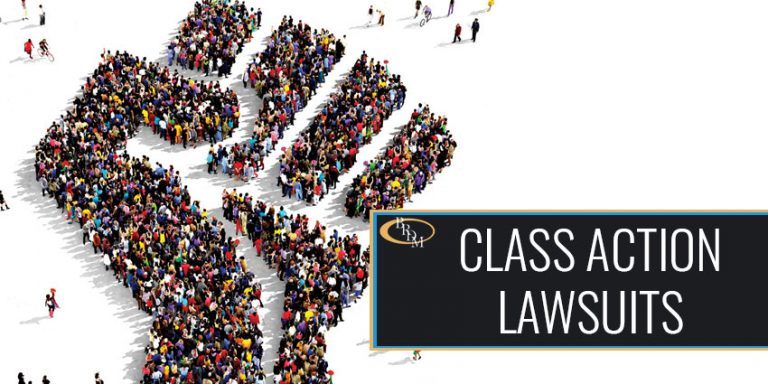Debunking Course Action Legal Actions: A Closer Consider Legal Process
Class action legal actions can be complicated and intimidating, often shrouded in a shroud of mystery for those not familiar with the legal proceedings included. Getting a deeper understanding of these claims is essential, as they offer as a powerful device for individuals to look for justice and hold firms liable. In this conversation, we will debunk class action legal actions, taking a closer consider the various elements of the lawful proceedings. From comprehending the criteria for class activity qualification to the function of course reps, and from the process of class qualification to the resolution of these lawsuits, we will untangle the intricacies and lost light on the internal workings of this legal device. Let's dive into the world of course activity legal actions and discover the complexities that lie below the surface area.
Comprehending Course Activity Suits
Recognizing Class Action Suit needs an extensive evaluation of the legal proceedings associated with cumulative lawsuits. Class action lawsuits are a sort of lawful action where a group of people with comparable insurance claims or grievances collaborate to launch a claim against a common offender. This type of litigation permits people with restricted resources to jointly seek justice, as it combines the toughness of several private claims right into a single lawsuit.
The process starts with the identification of a lead plaintiff or course representative that files the initial issue in support of the entire course. The court then establishes whether the situation meets the needs for class certification, which consist of commonality, numerosity, typicality, and competence of representation. If licensed, the court informs potential course members, providing them an opportunity to opt-out if they desire to pursue their cases individually.
As soon as the class is licensed, the litigation continues through different stages, consisting of discovery, movement practice, and, if needed, trial. The result of the lawsuit can lead to a negotiation or a judgment, which is binding on all course members unless they select to opt-out. Course action claims can incorporate a broad array of legal problems, such as customer defense, safety and securities fraudulence, employment discrimination, and environmental injury.
Understanding the nuances of course activity lawsuits is vital for both complainants and defendants associated with collective litigation. It needs a comprehensive understanding of the legal demands for qualification, the rights and obligations of class participants, and the possible advantages and threats associated with pursuing or protecting versus course activity insurance claims.
Identifying Course Activity Qualification
To establish whether a legal action qualifies as a class action lawsuit, particular requirements must be fulfilled. These standards are designed to ensure that the case can sufficiently represent the rate of interests of a big group of individuals who have endured comparable injury or have actually been impacted by the exact same problem. The essential consider identifying class action qualification is the visibility of a typical question or problem that affects all possible class participants.
Firstly, a class activity claim calls for numerosity, which implies there should be a significant number of prospective course participants entailed. This makes certain that a course action is an efficient method to solve the claims of a big group of people, instead than having everyone submit an individual claim.
Secondly, there need to be commonness amongst the insurance claims of the prospective course participants. This indicates that there have to be a typical inquiry of regulation or reality that is main to the case. A class action may not be ideal. if each prospective class member's insurance claim is unrelated and one-of-a-kind to the others.

The Duty of Class Representatives
Class representatives play a critical role in class activity lawsuits by representing the passions of the whole class. These individuals are picked from within the class to BioVie class action lawsuit function as the general public face of the lawsuit and are accountable for making choices in behalf of all class members. The function of class agents involves various obligations and obligations throughout the lawful proceedings.
One of the key duties of course representatives is to provide information and support to their fellow class members. They function as a point of get in touch with and interaction in between the class members and the attorneys representing them. This includes keeping the class members informed about important updates, answering their questions, and attending to any type of worries they may have.
Course reps additionally have the duty to proactively take part in the lawsuits procedure (Assertio class action lawsuit). This includes functioning carefully with the attorneys to establish lawful techniques, collecting evidence, and giving testimony if needed. They need to be proactively associated with all aspects of the situation to make certain that the very best passions of the whole class are represented
Moreover, class reps are accountable for authorizing negotiations or various other resolutions reached in the claim. They have to meticulously review the regards to the negotiation and decide that is in the most effective rate of interest of the whole class. This decision-making procedure calls for mindful consideration and appointment with the class participants.
The Process of Class Qualification
The process of accrediting a class in a course activity legal action involves a thorough assessment of details criteria to identify if the instance satisfies the necessary demands for class qualification. Class qualification is a crucial step in the lawsuits process as it identifies whether a claim can proceed as a class action, permitting a large group of individuals with similar claims to be represented collectively by one or a couple of people.
To get course certification, the complainant needs to show that the suggested course satisfies particular requirements. These requirements commonly include numerosity, commonality, typicality, and competence of representation. Numerosity needs that the class is so large that joinder of all participants is impractical. Commonness demands that there are concerns of legislation or fact common to the course participants. Typicality requires that the insurance claims or defenses of the course representatives are typical of those of the class. Competence of depiction ensures that the class reps will rather and sufficiently safeguard the interests of the class.
The court will certainly inspect these standards and the complainant's proof to figure out if the recommended class satisfies the needed requirements. The court might likewise take into consideration other elements, such as whether a course action is the exceptional method to resolve the dispute and whether the course is adequately natural.

Once the court grants course certification, the suit can continue as a class activity, permitting the complainants to collectively seek relief and potentially obtain a judgment or settlement that benefits the whole class.
Solving Class Action Lawsuits
As soon as course accreditation has actually been provided, the next action in settling a course activity legal action is to browse the procedure of litigation or negotiation negotiations. Litigation describes the legal procedures in court, where the complainant's lawyer presents proof and disagreements to sustain their insurance claims, and the offender's attorney counters with their very own proof and arguments. This process can involve various phases, such as pretrial movements, exploration, and trial. Throughout pretrial movements, both parties might submit motions to reject the instance or limit the concerns in contention. Exploration allows each side to gather evidence and info from the various other event with techniques such as document interrogatories, depositions, and requests. If the instance proceeds to test, both celebrations present their instance prior to a judge or jury, that will certainly after that make a decision the outcome.
On the various other hand, settlement arrangements involve discussions between the events to get to a mutually acceptable resolution without going to test. Negotiation supplies may be made at any type of phase of the lawsuits procedure, and if both events concur, a negotiation arrangement is gotten to.
Verdict
In final thought, course action legal actions play an important function in giving justice and payment to big teams of people who have been damaged by the same entity. By appointing and licensing a class class reps, the legal procedure ends up being extra reliable and easily accessible for the complainants. Resolving these claims can be a facility and extensive process, but it is crucial in holding companies accountable for their actions and making certain reasonable outcomes for all impacted parties.
From recognizing the standards for course action qualification to the function of course reps, and from the procedure of class certification to the resolution of these lawsuits, we will certainly untangle the intricacies and lost light on the internal operations of this legal system. The essential variable in identifying class activity eligibility is the existence of a common concern or concern that affects all potential course participants.
If each possible class member's claim is distinct and unconnected to the others, a course activity may not be suitable.
Class representatives play an important role in class activity lawsuits by standing for the interests of the whole class.Once course accreditation has actually been granted, the following action in dealing with a course action lawsuit is to browse the process of litigation or settlement arrangements.
Comments on “Future FinTech Class Action Lawsuit: Understanding Your Rights”